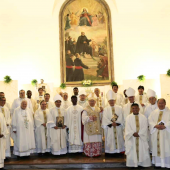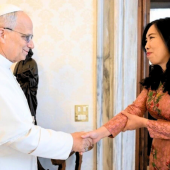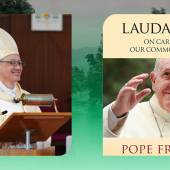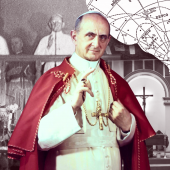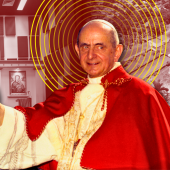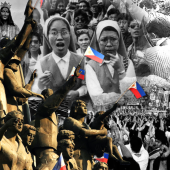Vietnam's visually impaired receive light from a Japanese doctor
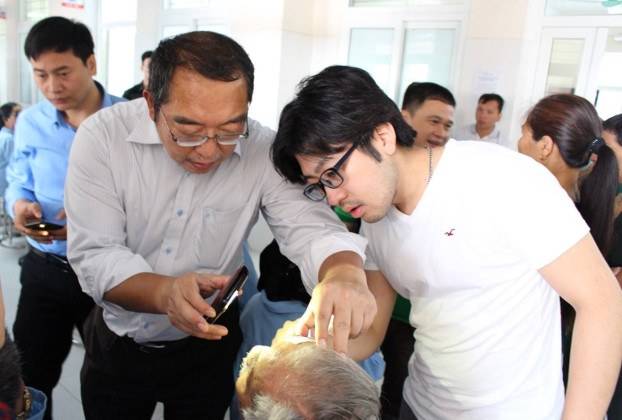
The 55-year-old Japanese ophthalmologist, Tadashi Hattori, one of this year's Magsaysay Awardees, has become a friend to several visually impaired patients in remote and marginalized parts of Vietnam.
He has become especially close to patients in Quang Ninh, Thai Nguyen, Bac Kan, Binh Phuoc, and Ca Mau.
Hattori began traveling to these areas, conducting free surgeries, bringing light to over 20,000 poor patients who could not afford treatment at major hospitals in Hanoi, the capital of Vietnam.
Doctor Hattori was born in Osaka in 1964, having graduated from Kyoto Prefectural University of Medicine in 1993, one of Japan's eight most prestigious universities.
At the age of 15, when his father died, he decided to become a doctor after witnessing the irresponsible behavior of hospital staff.
He said he treats his patients as if they were his parents after the death of his father.
He quoted, "Treat your patients as if they were your parents," as his motto.
Afterward, he was recruited by many renowned hospitals in his country to work as a doctor.
The highly-skilled ophthalmologist, Hattori, was able to perform 20 to 30 cataract surgeries per day as well as 6 to 8 vitrectomies a day, which is a highly technical procedure.
The Japanese government offered Hattori a well-paid job, but he chose to leave and devote himself to charity work, and he views medicine as a profession that serves others rather than accumulating wealth.
His life changed when he met a Vietnamese doctor at a scientific conference in 2001, who suggested he visits Vietnam.
Hattori learned that the Vietnamese people were poor and could not afford medical care, and some were in danger of going blind, even in middle age.
In April 2002, he resigned from his job to embark on a journey to Vietnam, a country he had never been to before.
He spent a month documenting everything related to the situation of eye patients who could not afford treatment after his first visit to Vietnam.
After returning to Japan, he sought sponsorship from doctors but was denied because he no longer worked for a hospital, and then submitted a request for assistance to the Japanese government.
Finally, he decided to spend all his savings on equipment to perform free surgeries in Vietnam with the money that he and his wife had set aside for retirement. He recalled that after telling her, his wife was furious and did not speak to him for three days.
But Hattori’s kindness and big heart won her over. His wife began to understand and support him fully when she was angry.
He spends half the year as a freelance ophthalmologist in Japan, earning money, then returns to Vietnam after the fateful meeting in 2001.
A group of friends and the community at home finally responded to his call for financial assistance, and he was able to raise funds to donate to public hospitals and private clinics where he works part-time.
Hattori said treating Japanese patients is easier because they consult their doctors immediately as soon as they experience health problems.
"Vietnamese patients only consult doctors when they are nearly blind, which is surprising given that the number of blind people in Vietnam is much higher than elsewhere," he added.
In 2005, Hattori founded the Asia-Pacific Prevention of Blindness Association (APPBA) to support cataract patients and currently works as the executive director for the association.
All medical examinations, treatment costs, lenses, and surgical instruments are paid for out of his and the organization’s savings.
The Vietnamese and Japanese governments appreciated Hattori's dedication to charity work.
In 2006, the Vietnamese government awarded him the Medal for People's Health; in 2012, the Japanese cabinet titled him "The Person Bringing Japan to the World; and in 2013, the Japanese foreign minister recognized him with a certificate of merit.
The Vietnamese government awarded him a friendship medal in 2014 for his dedication to preventing blindness.
According to Doctor Hoang Van Chinh at Quang Yen Hospital in Quang Ninh province, Hattori's most significant contribution is his transfer of knowledge and experience to Vietnamese doctors.
Whenever he visits disadvantaged local hospitals, he also requests financial assistance for the purchase of new specialized equipment to supplement the facilities.
The use of high-tech instruments and modern techniques allowed local hospitals to treat poor patients even when Hattori could not travel," he said.
Radio Veritas Asia (RVA), a media platform of the Catholic Church, aims to share Christ. RVA started in 1969 as a continental Catholic radio station to serve Asian countries in their respective local language, thus earning the tag “the Voice of Asian Christianity.” Responding to the emerging context, RVA embraced media platforms to connect with the global Asian audience via its 21 language websites and various social media platforms.









